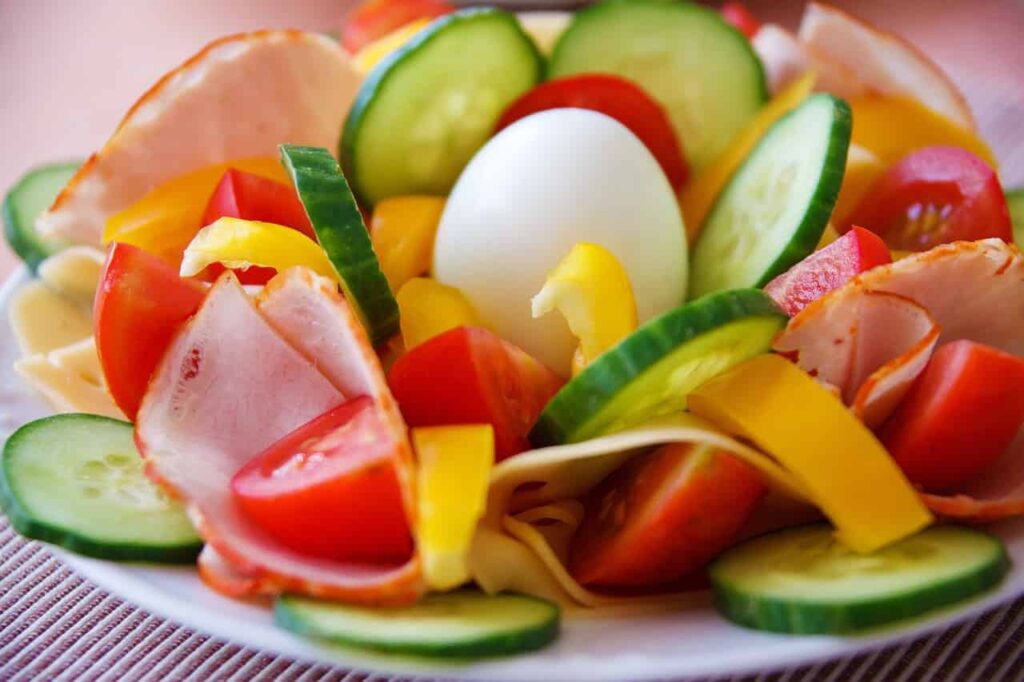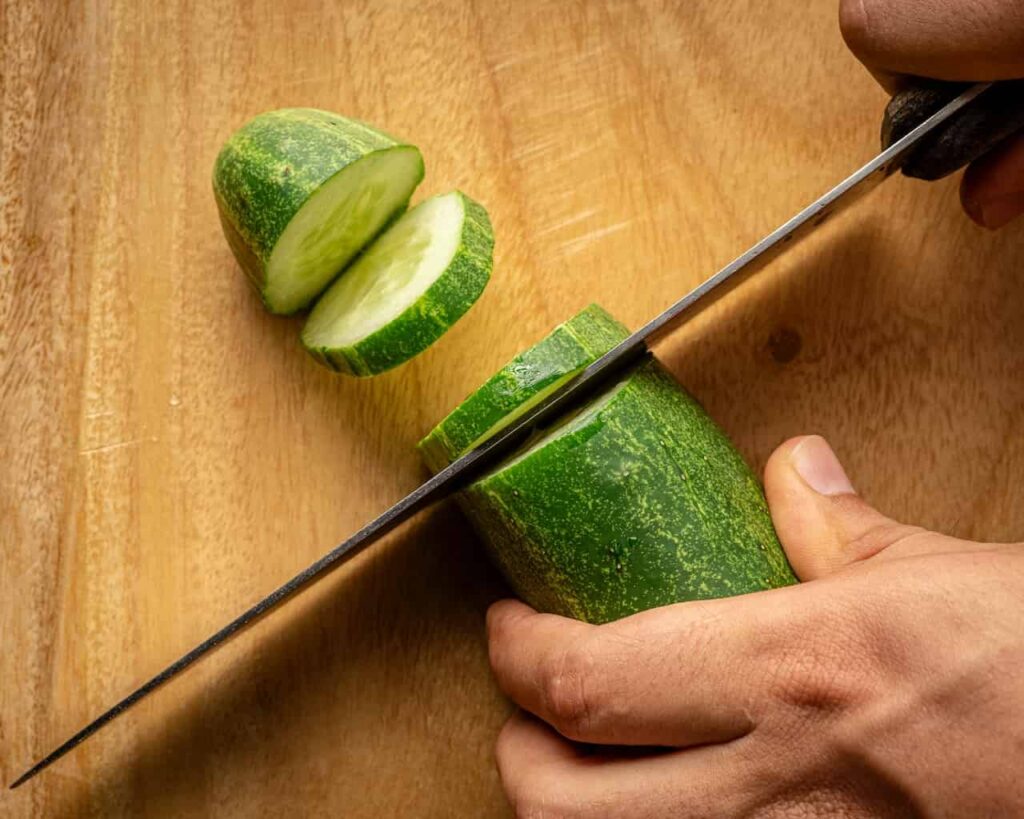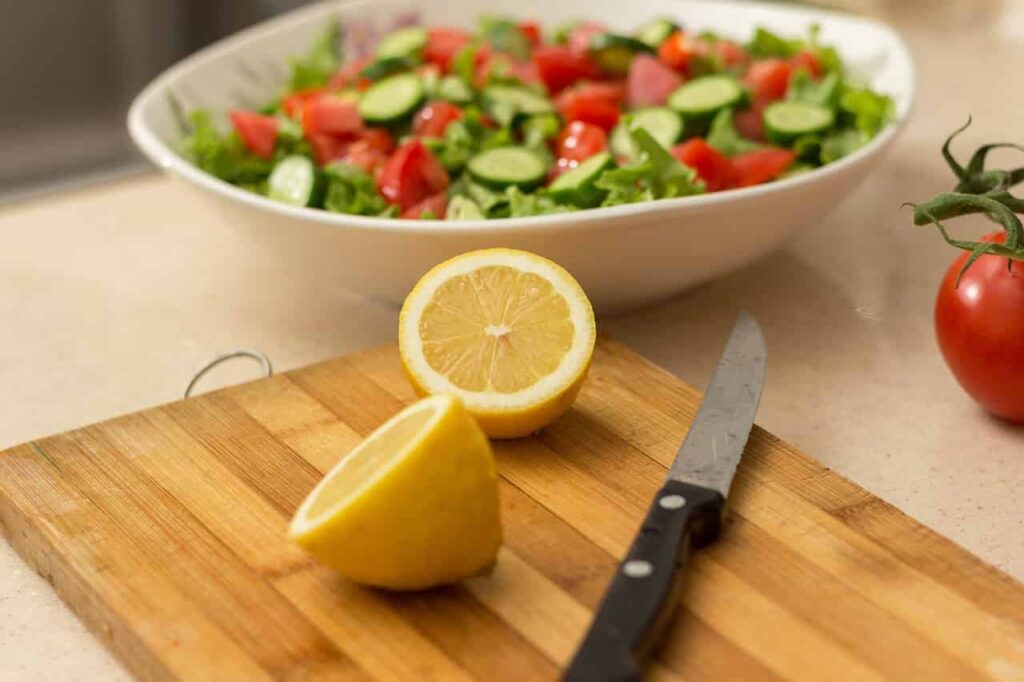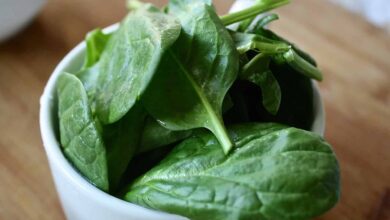Eating Cucumbers During Pregnancy: Benefits And More

Cucumbers during pregnancy can be a safe and nutritious addition to a diet. With their high water content, cucumbers can provide hydration support, aid in fetal development, and relieve common pregnancy discomforts. As with any dietary change during pregnancy, expectant mothers must consume cucumbers in moderation.
Why Pregnant Women Love Cucumbers? Top 10 Benefits

Here are 10 reasonable benefits of eating Cucumbers during Pregnancy for Mother and Baby:
1. Hydration Support
Eating cucumbers during pregnancy provides valuable hydration support for the expectant mother and the developing baby. Cucumbers are composed of approximately 95% water, making them an excellent natural source of hydration. Proper hydration is crucial during pregnancy as it helps maintain amniotic fluid levels, supports healthy blood circulation, and aids in nutrient transport to the baby. Dehydration can lead to pregnancy complications, such as preterm labor and reduced amniotic fluid levels.
2. Morning Sickness Relief
Eating cucumbers during pregnancy can relieve morning sickness for the expectant mother and the developing baby. Morning sickness, characterized by nausea and vomiting, is a common pregnancy symptom that can cause discomfort and dehydration. Cucumbers are especially important during bouts of morning sickness. With their refreshing taste and gentle properties, cucumbers offer a natural and nourishing solution to alleviate morning sickness, promoting a more pleasant and comfortable pregnancy experience for the mother and her growing baby.
3. Digestive Comfort:
Cucumbers during pregnancy can provide digestive comfort for the expectant mother and the developing baby. Cucumbers are a good dietary fiber source, which is crucial in promoting healthy digestion. Pregnancy hormones can slow the digestive process, so constipation is common for many pregnant women. The fiber content in cucumbers helps regulate bowel movements, easing constipation and ensuring regularity. This can lead to improved comfort and reduced abdominal discomfort during pregnancy.
4. Reduced Swelling:
Eating cucumbers during pregnancy can help reduce swelling, providing relief for both the expectant mother and the developing baby. Swelling, or edema, is common during pregnancy due to increased fluid retention and changes in circulation. Cucumbers are a natural diuretic, meaning they promote the elimination of excess water and toxins from the body through increased urine production. By encouraging proper fluid balance, cucumbers can alleviate swelling in the ankles, feet, and hands, commonly affected areas during pregnancy. This reduction in swelling can lead to increased comfort and mobility for the mother, making daily activities more manageable.
5. Nutrient Boost:
Eating cucumbers during pregnancy provides a significant nutrient boost for both the expectant mother and the developing baby. Cucumbers are also an antioxidant that helps strengthen the immune system and aid in iron absorption from plant-based foods, enhancing the body’s ability to maintain healthy iron levels during pregnancy.
6. Folate for Neural Tube Development
Eating cucumbers during pregnancy an essential for neural tube development for both the expectant mother and the developing baby. Cucumbers contain a significant amount of folate, making them a nutritious addition to a pregnancy diet. By including cucumbers in their meals, expectant mothers can ensure they provide their bodies with the necessary folate to support the healthy development of the neural tube in their baby, contributing to a strong foundation for the baby’s nervous system and overall well-being.
7. Antioxidant Protection
Eating cucumbers during pregnancy offers valuable antioxidant protection for the expectant mother and the developing baby. Cucumbers are rich in antioxidants, such as beta-carotene and flavonoids, which help combat free radicals in the body. Free radicals are unstable molecules that can cause oxidative stress and damage cells, potentially leading to various health issues. During pregnancy, the body’s antioxidant defense system may be under increased demand due to physiological changes. Cucumbers’ antioxidant properties can help neutralize these harmful free radicals, reducing the risk of oxidative damage and supporting overall health.
8. Skin Health
Eating cucumbers during pregnancy promotes skin health for the expectant mother and the developing baby. Cucumbers are a rich source of silica, a trace mineral known for its positive effects on skin elasticity and collagen production. As the body undergoes significant changes during pregnancy, the skin may stretch and become more prone to stretch marks. The silica content in cucumbers helps maintain the skin’s elasticity, reducing the likelihood of stretch marks and promoting smoother skin texture.
9. Bone Health
Eating cucumbers during pregnancy promotes bone health for the expectant mother and the developing baby. Calcium is vital for the baby’s skeletal development, especially during the third trimester when the bones rapidly grow and harden. It also helps the mother’s body meet the increased demand for calcium during pregnancy, ensuring that her bone health is supported. Strong bones are essential for both the mother and the baby, and incorporating cucumbers into the diet offers a delicious and nutritious way to enhance bone health during this critical stage of pregnancy.
10. Heart Health
Eating cucumbers during pregnancy promotes heart health for the expectant mother and the developing baby. A healthy heart function is crucial for providing sufficient oxygen and nutrients to the growing baby through the placenta. By incorporating cucumbers into their diet, expectant mothers can support their cardiovascular health and contribute to the well-being of their developing baby. Cucumbers’ refreshing and hydrating nature makes them a delightful addition to meals, offering heart-healthy benefits that promote a smooth and comfortable pregnancy journey for both the mother and her precious baby.
Cucumbers during Pregnancy in the First, Second & Third Trimester

Cucumbers can be a healthy addition to a pregnant woman’s diet throughout all three trimesters. They offer various nutrients and hydration benefits that can support the mother’s health and the baby’s development.
1. First Trimester
The baby’s organs form during the first trimester and proper nutrition is crucial. Cucumbers can be a refreshing and hydrating snack, helping to alleviate morning sickness and combat dehydration, which can be common during this period. The folate content in cucumbers is particularly important during the first trimester, as it prevents neural tube defects in the developing baby.
2. Second Trimester
The baby’s growth and development continue in the second trimester, and the mother’s nutrient needs increase. Cucumbers provide essential vitamins and minerals, including vitamin K and calcium, which benefit bone health and development. The high water content in cucumbers supports hydration and can help prevent constipation, which is also common during pregnancy.
3. Third Trimester
During the third trimester, the baby undergoes significant growth and gains weight. Cucumbers’ nutrient content, including potassium, can help maintain healthy blood pressure levels, which is important during the later stages of pregnancy. Cucumbers’ mild and easily digestible nature can make them a comfortable and soothing snack for pregnant women experiencing heartburn or gastrointestinal discomfort.
Using Tips for Eating Cucumbers during Pregnancy

Using tips for eating cucumbers during pregnancy can help maximize their health benefits for the expectant mother and the developing baby. Here are some tips to consider:
- Wash Thoroughly: Before eating cucumbers, wash them thoroughly under running water and use a vegetable brush to remove any dirt or potential contaminants from the skin.
- Choose Organic or Homegrown: Opt for organic cucumbers or those grown at home without pesticides or harmful chemicals.
- Fresh and Crisp: Select fresh, firm, and free cucumbers from any soft spots or wrinkles. Fresh cucumbers have a crisp texture and will be more enjoyable to eat.
- Variety in Consumption: Incorporate cucumbers in various ways, such as adding slices to salads, making cucumber sandwiches, blending them into smoothies, or simply enjoying them as a refreshing snack.
- Safe Storage: Store cucumbers in the refrigerator to maintain freshness and prevent spoilage.
- Listen to Your Body: If you experience discomfort or adverse reactions after eating cucumbers, consult your healthcare provider for personalized advice.
Remember that while cucumbers offer numerous health benefits during pregnancy, they should be part of a well-balanced diet that includes a variety of fruits, vegetables, proteins, and whole grains.
Recipes of Cucumbers during Pregnancy

Here are some suitable and beneficial recipes for Cucumbers during Pregnancy:
1. Cucumber Avocado Salad
- Thinly sliced cucumber, diced avocado, halved cherry tomatoes, and sliced red onion.
- Drizzle with lemon juice and olive oil.
- Toss gently with chopped fresh basil, salt, and pepper.
2. Cucumber Mint Smoothie
- Blend cucumber, baby spinach, mint leaves, Greek yogurt, honey (optional), and water/coconut water.
- Add ice cubes for a colder smoothie.
3. Grilled Chicken Cucumber Wraps
- Grilled and sliced chicken breast, cucumber slices, grated carrot.
- Drizzle with Greek yogurt, lemon juice, and chopped dill dressing.
- Roll in whole grain tortillas or lettuce leaves.
4. Cucumber Tomato Salsa
- Diced cucumber, cherry tomatoes, red onion, and jalapeno.
- Drizzle with lime juice, add chopped cilantro, salt, and pepper.
- Serve with tortilla chips.
5. Cucumber Melon Salad
- Thinly sliced cucumber, diced cantaloupe/honeydew melon.
- Drizzle with honey and lime juice.
- Add chopped mint leaves and chill before serving.
Raw Cucumber during Pregnancy
Raw cucumber is generally safe to eat during pregnancy and can be a healthy addition to a pregnant woman’s diet. Cucumbers are low in calories and water content, making them a refreshing and hydrating snack option, which can be particularly beneficial during pregnancy when staying well-hydrated is essential.
Nutrition of Cucumber
The nutritional content of cucumber per 100 grams:
| Nutrient | Amount per 100g |
|---|---|
| Calories | 15 kcal |
| Carbohydrates | 3.6 g |
| Fiber | 0.5 g |
| Protein | 0.65 g |
| Fat | 0.11 g |
| Vitamin C | 2.8 mg |
| Vitamin K | 16.4 mcg |
| Folate (Vitamin B9) | 7 mcg |
| Potassium | 147 mg |
| Magnesium | 13 mg |
| Calcium | 16 mg |
Craving Cucumbers while Pregnant gender
Craving cucumbers during pregnancy is not an indicator of the baby’s gender. Pregnancy cravings are a common phenomenon and can vary widely from one woman to another. While some women may crave cucumbers or other vegetables, others may crave sweets, salty foods, or other foods.
Moderating the consumption of cucumbers: Any Risk?
Moderating the consumption of cucumbers during pregnancy is essential to ensure a balanced and healthy diet for both the mother and the baby:
- Portion Control: Enjoy cucumbers as part of a varied diet and avoid excessive consumption. Include a variety of other fruits, vegetables, proteins, and grains to meet all nutritional needs.
- Monitor Allergies: Be mindful of any cucumber allergies or sensitivities. If you notice any adverse reactions, consult with your healthcare provider.
- Balanced Diet: Use cucumbers as one component of a well-balanced diet that includes a mix of nutrients from various food groups.
FAQ’s
Are carrots and cucumbers good for a pregnant woman?
Yes, both carrots and cucumbers are good for a pregnant woman. Carrots are rich in beta-carotene, which the body converts into vitamin A, essential for fetal development and overall health.
Can a pregnant woman eat cucumber on an empty stomach?
Yes, a pregnant woman can eat cucumber on an empty stomach. Cucumbers are a low-calorie and hydrating option that can be consumed as a healthy snack anytime, including on an empty stomach. They can be a refreshing and nourishing choice to start the day.
Is it safe to eat cucumber during pregnancy?
Yes, it is safe to eat cucumber during pregnancy. Cucumbers are generally considered a safe and nutritious food for pregnant women.
Can cucumber cause miscarriage?
There is no evidence to suggest that cucumbers can cause miscarriage. Cucumbers are generally safe during pregnancy and are a good source of hydration, vitamins, and minerals. They do not contain known substances harmful to a developing fetus when consumed in moderate amounts as part of a balanced diet.
Conclusion: Step into Lady Well Care, where you’ll find a captivating array of fitness, culinary, and nutrition content tailored exclusively for women. Whether you are embarking on the journey of pregnancy or navigating life post-abortion, our primary aim is to lead you toward a healthier and happier lifestyle.
- Explore our thoughtfully curated articles on the Homepage and empower yourself to embrace a more joyful existence. Join us today and embark on a path to wellness!




